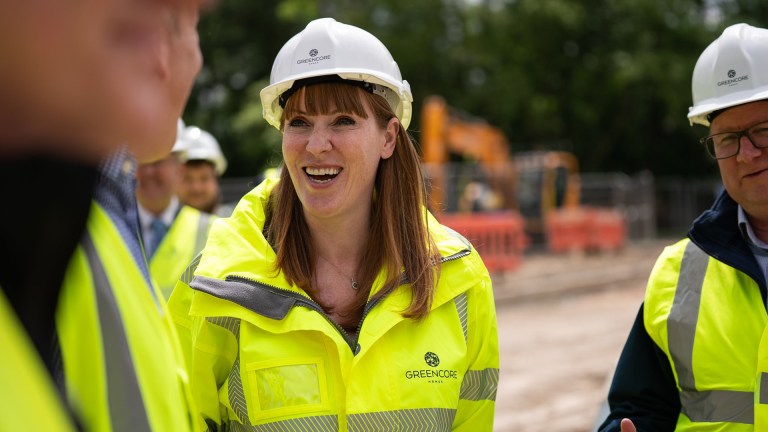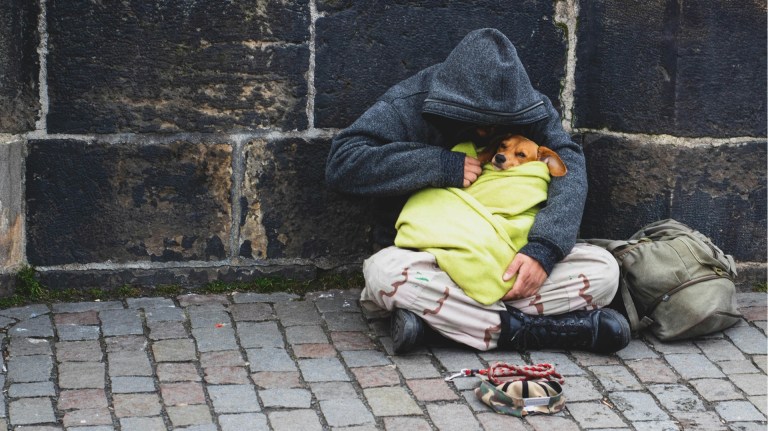Yet the SNP’s finance secretary Shona Robinson has argued that poorer families pay proportionately more of their income on council tax, and so lose out when rates rise. To cover the costs, the SNP will increase income tax on those earning over £125,000.
A tax that can get you sent to prison
For those on the edge of poverty, it is unlikely to be money going spare. Councils do provide some support for the most vulnerable, but they also imprison those who do not pay. Non-payment of council tax, without a good reason, can carry a sentence of up to three months.
A total of 80 people were jailed in the five years to 2023, the New Statesman found.
Appeal believes the phenomenon may be “one of the largest mass miscarriages of justice in British history”, with between 9.5% and 18% of those sent to prison for non-payment unlawfully imprisoned.
Scotland and Northern Ireland do not send people to prison for non-payment, and Wales stopped the practice in 2018.
Wheelie bins and street lights – the everyday casualties of the crisis
The crisis won’t just hit residents’ bank accounts. Alongside getting poorer, services will be cut. Anything deemed “non-essential” is in danger, as well as hundreds of jobs across the country. It’s austerity that will be felt in big and small ways.
Advertising helps fund Big Issue’s mission to end poverty
Croydon is ‘rationing’ wheelie bins, and charging residents £5 a pop for new bins, alongside planned £4m cuts to children’s services.
Woking has proposed closing public toilets and stopping funding day care. It is even asking residents to donate to a fund, aimed at keeping non-essential services open, including Citizens Advice.
In Birmingham, street lights will be dimmed, some transport for young people will be cut, and a £9m reduction made to children’s services.
How did we get here?
Some of the reasons for the mess are specific: an equal pay injustice in Birmingham, or the soaring cost of placing children in care, and temporary accommodation for the homeless. But there is a wider story of austerity, and the flawed medicine councils were forced to take.
The words “Marks and Spencer” and “Surrey” should evoke placid, stable, English affluence. But step outside a branch in Woking, into Victoria Place – a high-rise development with a four-star Hilton Hotel, the Italia Conti performing arts academy, bowling, and three towers housing 429 flats – and you may have unwittingly stumbled onto the site of a town’s ruin.
Woking council borrowed the £750m needed to put the skyscrapers up. Had everything gone to plan, this would have been Surrey’s Singapore, a new city barely an hour from London. Instead, it’s looking at a future more like a failed state. In all likelihood, taxes will rise, services will shut down, anything non-essential will be cut. There’s £19,000 of debt for each resident.
Advertising helps fund Big Issue’s mission to end poverty
In the wake of cuts to local government budgets, money disappeared. What took its place was a big, shiny financial innovation – borrow from the government to buy commercial property. It’s a no-brainer, really, and councils got stuck in. In the three years to 2020, they borrowed £6.6bn.
Like any get rich quick scheme, warnings followed. First, the Committee of Public Accounts raised concerns in 2016. Then in 2019 the National Audit Office warned that the risks needed to be better considered. In 2020, the government banned the practice altogether.
But it was too late for Woking, who had racked up over £1bn in debt, including the £700m to build Victoria Square. For Thurrock council, in Essex, failed investments in solar farms have left it with debts of around £1.5bn
Residents in Croydon, counting the pennies to avoid imprisonment, can look to the Croydon Park Hotel and Colonnades Retail Park, purchases borne of the same bizarre boom.










